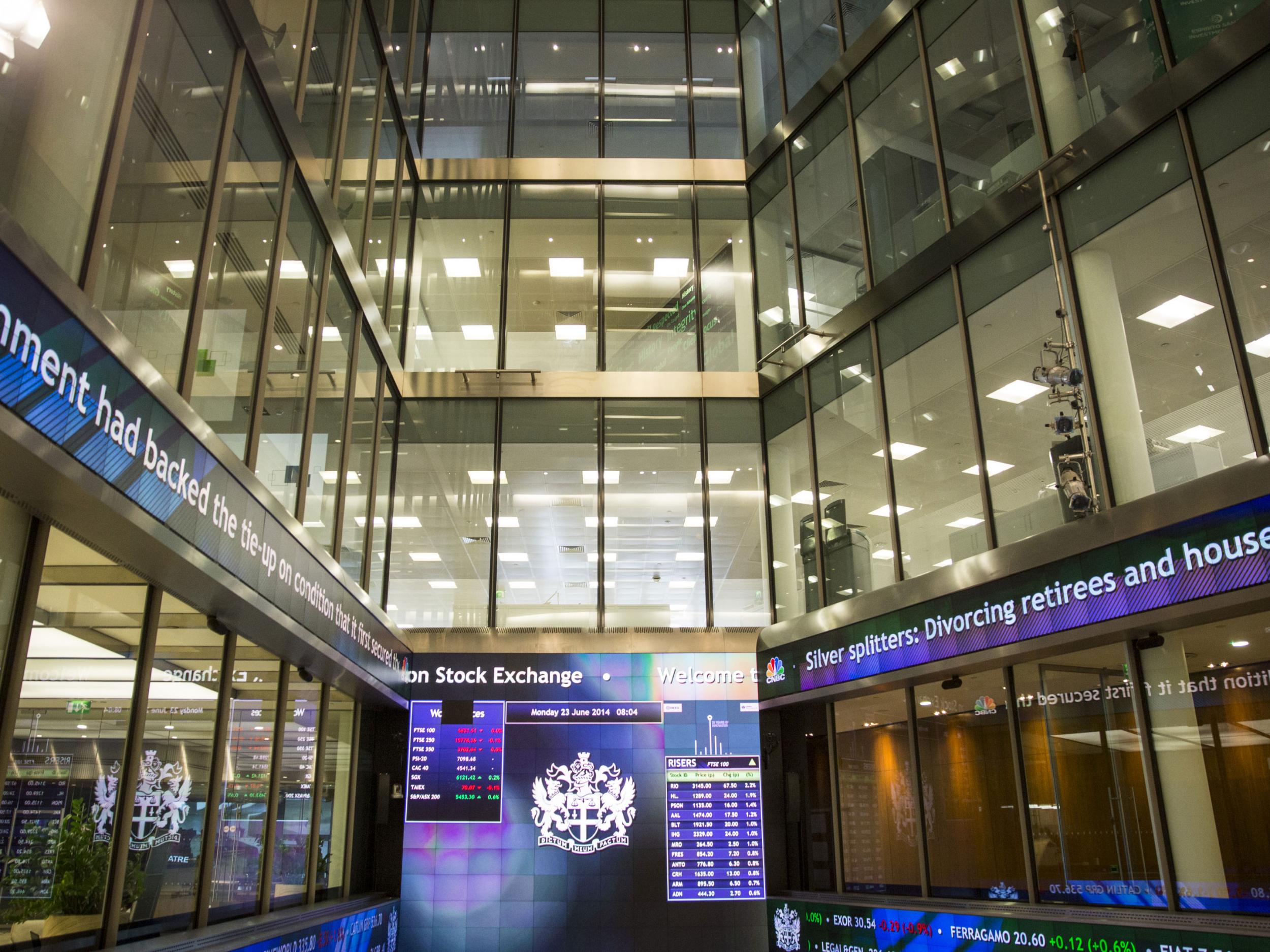FTSE 100 ends at record high as Brexit deadlock hits pound sterling
Around two-thirds of FTSE 100’s revenue is generated overseas and the index is priced in sterling

The UK’s main stock marked eked out a fresh record high on Thursday, spurred by a slide in the pound amid swelling Brexit concerns.
The FTSE 100 ended the session up 0.3 per cent at 7,556.24, eclipsing its last historical record set in May, when it finished the day just over 7,547.
The rally was largely spurred by a slide in the pound after a fifth round of Brexit talks in Brussels yielded no progress. The European Commission’s chief negotiator, Michel Barnier, spoke of a “disturbing deadlock”.
Around two-thirds of FTSE 100’s revenue is generated overseas and the index is priced in sterling. That means that if the pound falls, the income internationally-exposed companies generate overseas becomes worth more when brought back home.
The pound hit a day’s low of around $1.3122 against the dollar after Mr Barnier’s comments and the embattled currency has now tumbled well over 10 per cent since last year’s Brexit vote. Largely helped by this, the FTSE 100 has chalked up gains of around 23 per cent since June 2016.
Going forward, many financial experts don’t see the pound’s direction reversing any time soon.
“The current ‘deadlock’ shows little signs of being broken, with both sides unwilling to budge in their stance and combative positions,” analysts Chris Beauchamp and Josh Mahony at IG wrote in a note to clients. “As time ticks on, the chance of a hard Brexit [is] heightened.”
For investors, Laith Khalaf, a senior analyst at Hargreaves Lansdown, also said that there are still decent reasons to be buying equities.
“It’s also worthwhile considering the alternatives to the stock market,” he said.
“Cash is still yielding next to nothing against a rising tide of inflation, while bonds offer investors low returns with quite significant risks, a far from appealing combination. Property prices aren’t cheap in anyone’s book, and buy-to-let is now facing significant tax headwinds. By comparison then, the stock market looks pretty attractive,” he added.
Subscribe to Independent Premium to bookmark this article
Want to bookmark your favourite articles and stories to read or reference later? Start your Independent Premium subscription today.

Join our commenting forum
Join thought-provoking conversations, follow other Independent readers and see their replies